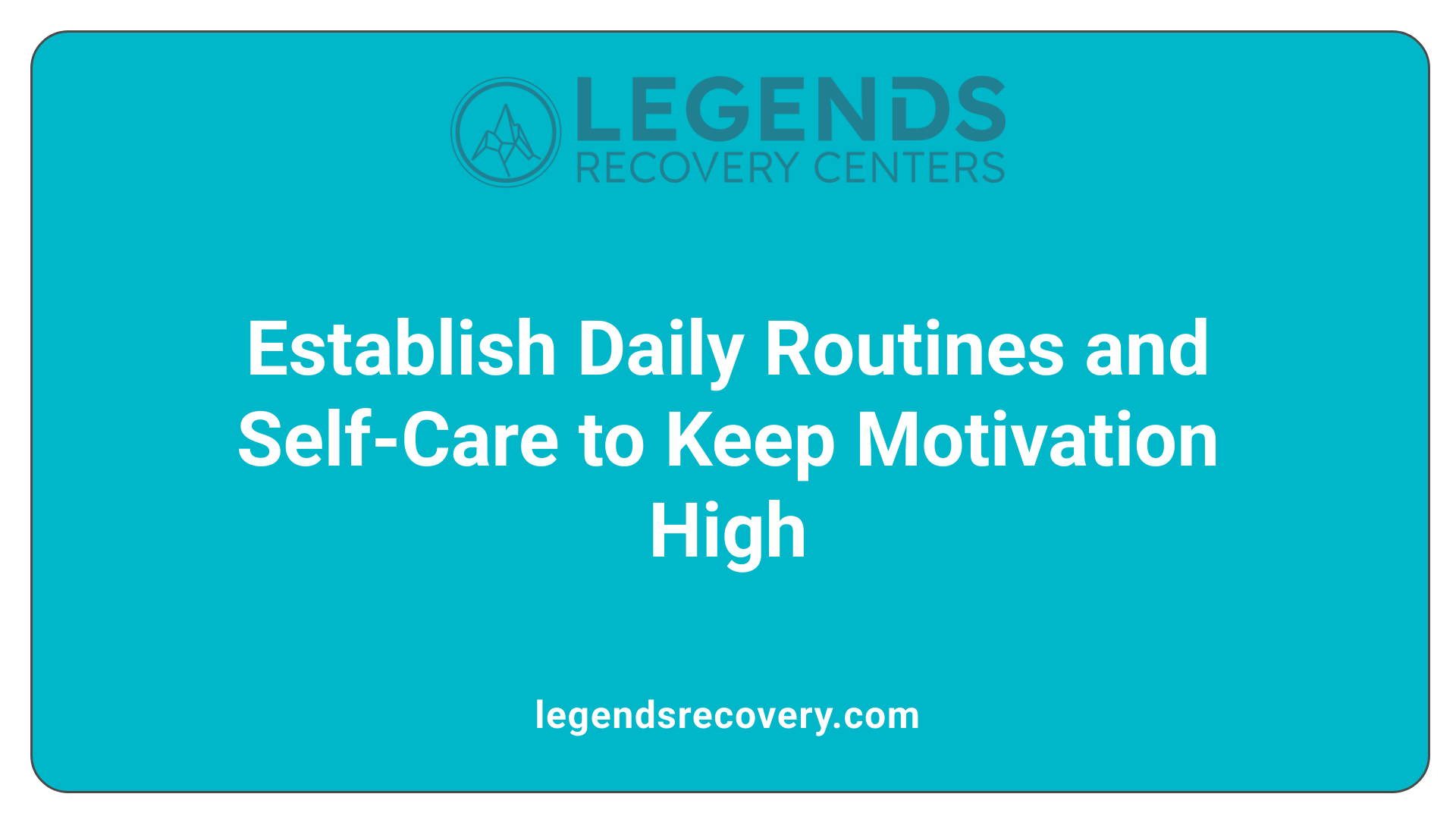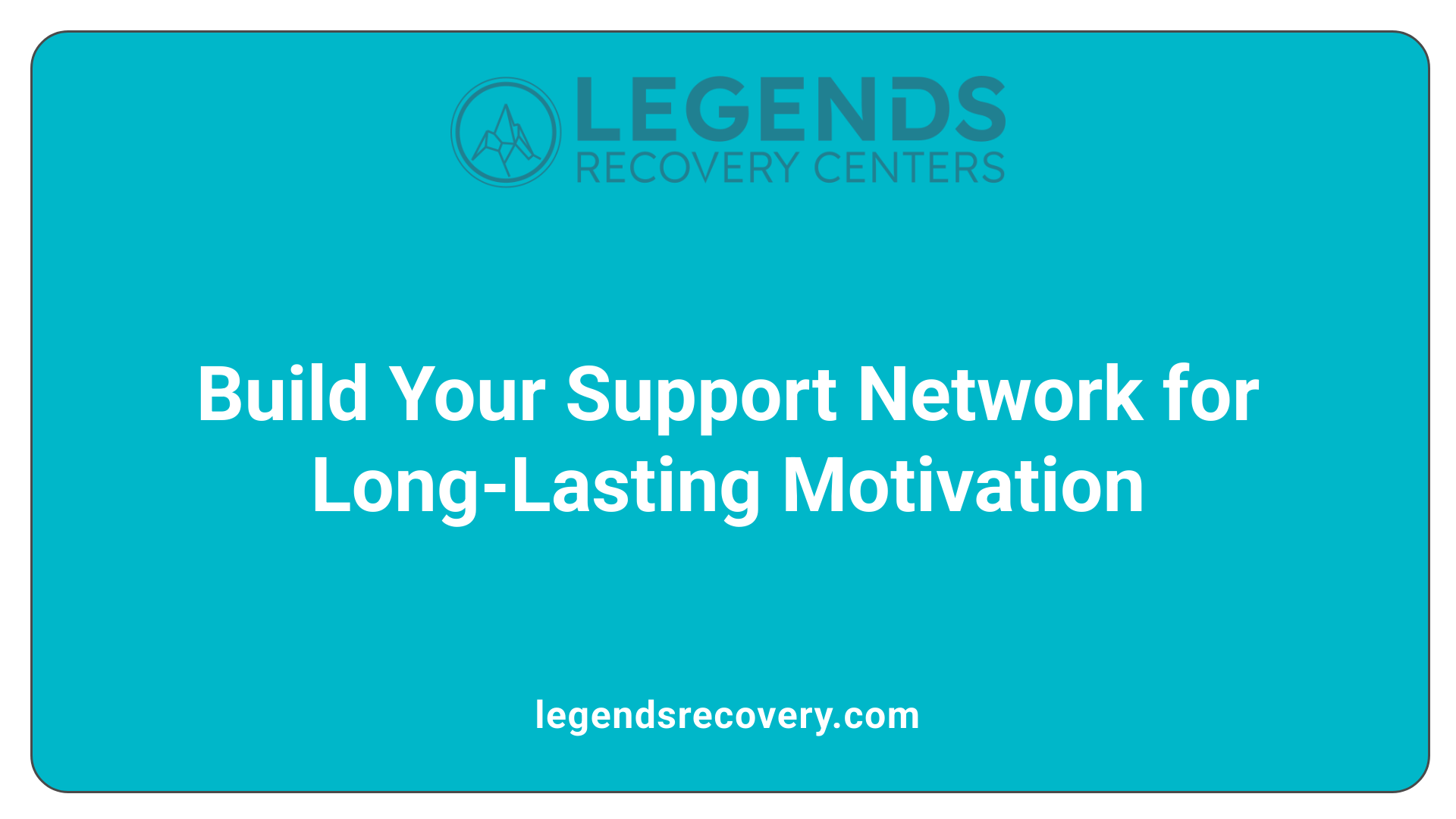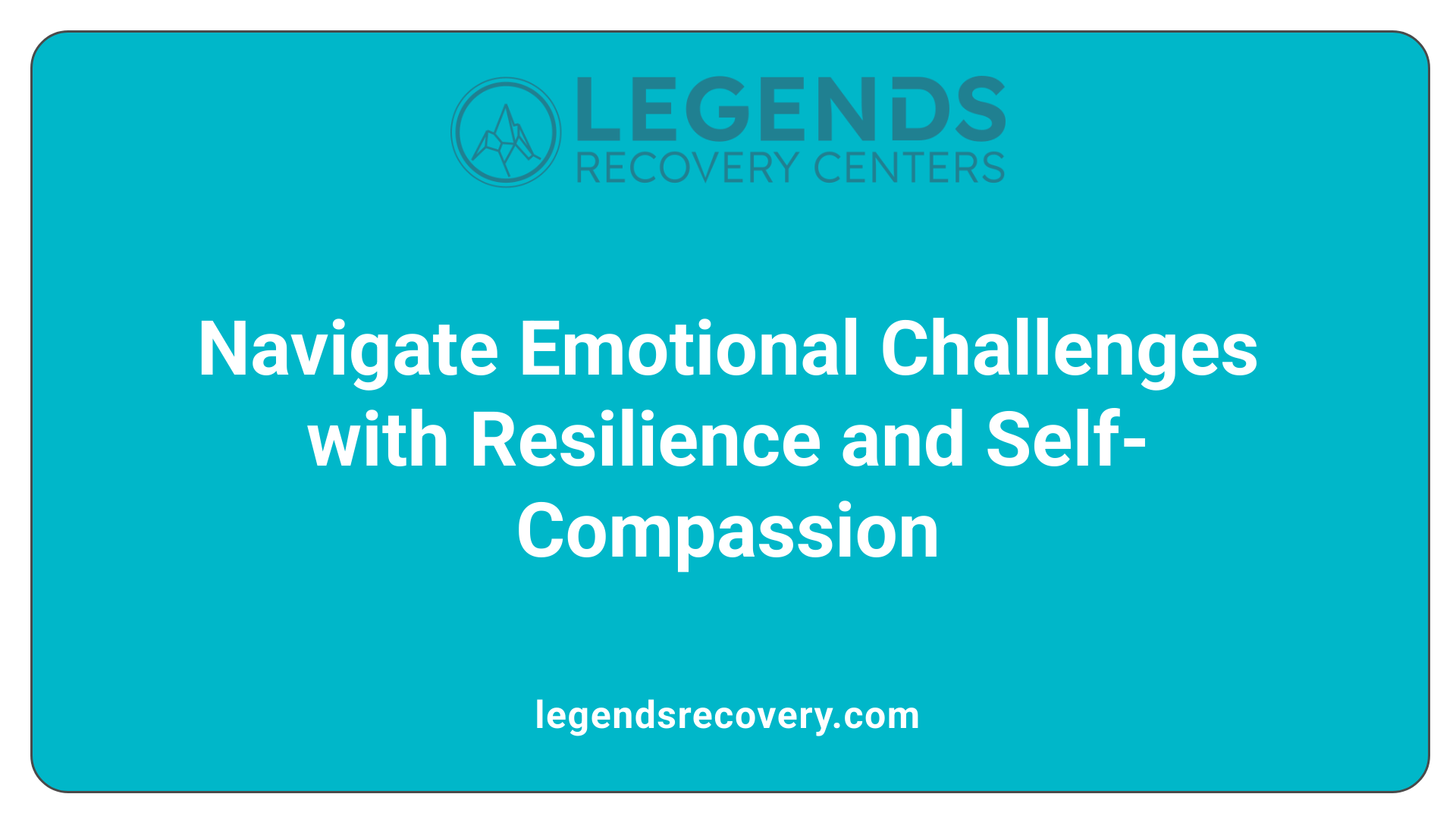Fostering Lasting Strength: Mastering Motivation in Recovery

Embarking on a journey of recovery from addiction is a profound act of self-empowerment that demands sustained motivation and resilience. Recognizing that motivation serves as the fuel for overcoming emotional, physical, and psychological hurdles, this guide explores various strategies to maintain and boost motivation throughout the recovery process. From understanding intrinsic and extrinsic motivators to creating a structured environment rooted in self-care, building support systems, and recognizing the significance of purpose, this article provides a comprehensive roadmap to help individuals stay committed to lasting change.
Recovery from addiction is a deeply personal journey, often motivated by reasons that resonate on an emotional and values-based level. Many individuals are driven by concerns about their physical health, recognizing that substance abuse can cause long-term damage or health complications. Others are motivated by the desire to repair and strengthen relationships with family, friends, and loved ones, seeking reconnection and trust. Personal growth, including achieving self-acceptance, building confidence, and pursuing new life goals, also serves as a powerful incentive. By identifying these reasons, individuals can tap into a strong reservoir of motivation that sustains their effort through setbacks and challenges.
Motivation can be classified as internal (intrinsic) or external, and both play roles in the recovery process. Internal motivation originates from within the individual and is driven by personal satisfaction, values, growth, and self-improvement. For example, a person might pursue sobriety because they genuinely value their health or want to become a better parent. This type of motivation tends to have greater staying power over the long term.
External motivation, on the other hand, involves outside influences like praise, recognition, or avoiding negative consequences such as legal trouble or social disapproval. While external rewards can initiate change, they are often less effective for maintaining motivation once the external pressures fade.
Successful recovery often depends on fostering internal motivation, as it aligns with personal core values and encourages a deep, lasting commitment to change.
Self-reflection is a vital practice in building and maintaining motivation. By asking questions such as 'What is really important to you?' or 'What do you want out of life?', individuals clarify their core values and priorities. This process helps deepen their understanding of personal reasons for recovery and reinforces their intrinsic motivation.
Reflective questions prompt individuals to connect with their deeper aspirations, such as wanting to be healthy, reconnect with loved ones, or achieve personal goals. This clarity creates a compelling "why" that can sustain effort during difficult times.
Moreover, journaling, meditation, or talking with a trusted counselor can facilitate this introspection. When individuals recognize that their reasons for change are meaningful and aligned with their true selves, the motivation to persevere naturally strengthens.
Celebrating milestones, no matter how minor, reinforces progress and boosts confidence. Building a solid support network of friends, family, recovery groups, and professionals provides encouragement, accountability, and emotional reinforcement.
Ensuring continuous connection to one's internal reasons through regular reflection, gratitude practices, and visualization maintains motivation. Pairing these techniques with healthy routines, regular exercise, and mindfulness further supports emotional resilience.
Recovery is an ongoing process, requiring persistent effort, adaptation, and a compassionate approach toward oneself. Recognizing personal reasons and nurturing intrinsic motivation are central to long-term success.

Setting goals and acknowledging achievements play a vital role in the recovery process. They offer a clear pathway and motivation, helping individuals stay focused and committed to their sobriety journey.
In recovery, progress can sometimes feel slow and challenging. Celebrating small victories, like resisting a craving or attending a support meeting, boosts confidence and reinforces positive habits. These celebrations act as positive reinforcement, encouraging individuals to persevere through difficulties.
Recognizing milestones also builds resilience by providing tangible proof of progress. This can help combat feelings of frustration or hopelessness that often surface during recovery.
Social support networks thrive when milestones are shared. Celebrations strengthen relationships with friends, family, and support groups. This sense of community and shared success fosters emotional well-being.
Using goal frameworks like SMART (Specific, Measurable, Achievable, Relevant, Time-bound) allows individuals to track their progress clearly. It ensures goals are realistic and attainable, reducing overwhelm and increasing motivation.
Overall, goal-setting and celebrating achievements transform recovery into a structured, achievable process. They promote positive self-esteem and help maintain long-term sobriety, making the challenging journey sustainable and meaningful.

Establishing daily routines and engaging in consistent self-care activities are vital elements in maintaining motivation during addiction recovery. Routines create a sense of stability and predictability, which helps reduce anxiety and feelings of being overwhelmed. When recovery tasks become habitual, they transform into manageable parts of daily life, making it easier to avoid relapse triggers.
Incorporating activities such as exercise, balanced nutrition, mindfulness practices, and social interactions strengthens emotional resilience. These habits boost self-esteem, provide a sense of control, and help in managing stress—factors that significantly influence motivation. When self-care becomes ingrained, individuals feel more empowered and committed to their recovery journey.
Celebrating small wins and tracking one's progress—whether through journals, apps, or visual charts—serve as positive reinforcement. Recognizing achievements like staying sober for a week or completing a therapy session can energize continued effort. This ongoing acknowledgment keeps motivation high and fosters a growth mindset.
Setting realistic daily goals and remaining flexible when facing setbacks are important strategies. Accepting that recovery is a process, and seeking support from counselors, support networks, and loved ones, can provide encouragement and validation. Overall, routines and self-care practices act as anchors, helping individuals sustain momentum and resilience through the ups and downs of recovery.

Establishing a reliable support system is essential for sustained motivation during recovery. This network includes trusted family members, friends, and peer support groups that understand the challenges of addiction. These individuals can offer emotional encouragement, accountability, and practical help. Participating in regular meetings and maintaining open communication nurtures a sense of belonging and reinforces commitment to sobriety.
Support groups such as Alcoholics Anonymous (AA) or Narcotics Anonymous (NA) serve as vital sources of motivation. They offer a safe space where individuals can share experiences, celebrate milestones, and receive encouragement from others who understand their journey. These groups promote accountability through peer pressure and social reinforcement, reducing feelings of isolation. Celebrating sobriety anniversaries and milestones within these communities strengthens resolve and provides tangible proof of progress.
Professional support from counselors, therapists, and recovery centers complements peer networks by providing tailored treatment plans and emotional guidance. Therapists help individuals explore underlying causes of addiction, develop coping skills, and set realistic goals. Regular therapy sessions reinforce motivation, especially during setbacks, and help integrate personal growth with recovery. Many recovery centers offer group therapy, educational programs, and relapse prevention strategies that foster ongoing engagement.
Support systems operate through various mechanisms, including social control, social learning, and stress reduction. The presence of caring individuals encourages accountability, making it easier to resist triggers and avoid relapse. Sharing struggles and successes discourages self-isolation and promotes a positive outlook. Support networks also help manage emotional stress—common triggers for substance use—by offering empathy, practical advice, and encouragement.
| Support System Type | Role in Motivation | How It Promotes Recovery | Additional Details |
|---|---|---|---|
| Family and Friends | Emotional support and accountability | Encourage honesty, celebrate successes | Regular check-ins, shared activities |
| Peer Support Groups (AA, NA) | Social reinforcement and shared experience | Foster community, reduce isolation | Milestone celebrations, peer mentoring |
| Recovery Centers & Therapists | Professional guidance and personalized plans | Address underlying issues, teach coping skills | Group/individual therapy, relapse prevention |
| Online Support & Helplines | Immediate assistance and resources | Provide accessible help, reduce stress | 24/7 availability, educational resources |
Effective recovery hinges on a comprehensive support network that includes family, friends, peer groups, and health professionals. These elements contribute to emotional guidance, social connection, and practical resources. Peer groups foster social support, which is linked to lower relapse rates and better treatment retention. Support mechanisms operate through social control, stress management, and modeling healthy behaviors. Access to professional therapy and community services like helplines further ensures ongoing assistance. A robust network creates a safety net that promotes long-term sobriety, enhances well-being, and helps individuals achieve their recovery goals.
For further insights, search queries like "Building effective support networks in addiction recovery" can provide additional strategies and success stories. Establishing a multi-layered support system is proven to significantly improve recovery outcomes, reduce stress, and sustain motivation over the long term.

Recognizing when motivation wanes is crucial in maintaining progress through addiction recovery. Common signs include feelings of fatigue, persistent depression, frustration, and self-pity. Individuals might also experience complacency, impatience, dishonesty about their struggles, or a sense of stagnation. These feelings can signal emotional exhaustion or disillusionment, which, if left unaddressed, might increase the risk of relapse.
Unmet expectations and emotional triggers—such as anger, resentment, or romanticizing past behaviors—can also diminish motivation. Overconfidence may lead to complacency, making individuals underestimate ongoing challenges.
To effectively combat these signs, it’s essential to revisit and recalibrate recovery goals, breaking larger objectives into smaller, manageable steps. Maintaining a support network of peers, therapists, or mentors provides encouragement and accountability. Engaging in self-compassion practices and celebrating even minor milestones can reinforce progress. Physical activities, spirituality, or mindfulness exercises help restore emotional balance.
Developing resilience involves cultivating realistic expectations and healthy coping strategies. Staying connected with purpose, focusing on personal growth, and reflecting on the reasons behind recovery reinforce internal motivation. Recognizing and addressing these signs early helps sustain long-term sobriety and prevents setbacks.
| Signs of Loss of Motivation | Emotional Indicators | Practical Responses | Additional Notes |
|---|---|---|---|
| Fatigue and exhaustion | Feelings of burnout or sluggishness | Schedule rest, prioritize self-care | Physical needs influence emotional drive |
| Depression or persistent sadness | Feelings of hopelessness or worthlessness | Seek therapy, engage in uplifting activities | Mental health is integral to motivation |
| Frustration and impatience | Irritability, wishing progress was faster | Practice patience, celebrate small wins | Long-term recovery is a gradual process |
| Self-pity and resentment | Dwelling on setbacks or unfairness | Practice gratitude, reinforce goals | Reframe setbacks as learning opportunities |
| Complacency and stagnation | Feeling stuck or unchallenged | Introduce new activities, set fresh goals | Keeps recovery dynamic |
| Dishonesty or avoidance | Ignoring triggers or responsibilities | Cultivate honesty, deepen self-awareness | Trust-building supports motivation |
| Overconfidence or high self-praise | Underestimating ongoing challenges | Maintain humility, seek feedback | Balance confidence with caution |
Managing setbacks involves understanding that relapse and emotional hurdles are part of the recovery process, not failures. Setting realistic expectations and acknowledging that progress can include ups and downs foster resilience.
When emotional triggers—such as stress, anger, or cravings—arise, employing mindfulness and grounding techniques can help. Deep breathing, meditation, or distraction can temporarily reduce intensity.
Creating a crisis plan with coping strategies, engaging in enjoyable and distracting activities, and seeking immediate support from friends or counselors are effective measures.
Participation in support groups provides shared experiences and encouragement, reinforcing that setbacks are normal and manageable.
Building resilience involves developing a growth mindset—viewing challenges as opportunities to learn—and cultivating patience.
Self-compassion is vital in recovery. Treat yourself with kindness during difficult times and avoid guilt or self-blame for setbacks. Recognize that setbacks do not erase progress but are part of the learning curve.
Techniques like journaling about emotional experiences, practicing gratitude, and engaging in self-care activities support self-compassion. Celebrating small wins and reminding oneself of the reasons for starting recovery builds confidence.
Overall, understanding that emotional challenges are temporary and manageable with proper strategies boosts resilience, which sustains motivation and fosters continued growth in recovery.

Establishing a sense of purpose and aligning with personal values are fundamental in sustaining motivation throughout the recovery process. When individuals clearly understand what matters most to them—whether it’s health, relationships, or personal achievement—they develop a strong internal drive to stay sober. Personal purpose acts as a guiding light, helping to navigate the emotional and physical challenges that arise.
Reconnecting with core values reinforces commitment and provides context for ongoing efforts. For example, a person motivated to regain family trust may find renewed strength when faced with setbacks. Reflecting on questions like 'What do I want out of life?' or 'What is truly important to me?' can uncover intrinsic motivations that fuel resilience and determination.
Ultimately, purpose and values offer a foundation for building a meaningful life beyond addiction, offering emotional stability and guiding decision-making.
Celebrating achievements, no matter how small, helps reinforce motivation by providing tangible proof of progress. For instance, recognizing sobriety anniversaries, successfully managing cravings, or achieving personal goals like improved health can rekindle hope and pride.
Support from family, friends, and recovery communities is vital. These networks provide encouragement, accountability, and a sense of belonging. Sharing experiences with others who understand the struggles can inspire perseverance.
Engaging with passions, hobbies, or new activities also boosts motivation. Whether it’s exercising, volunteering, or exploring new interests, these endeavors foster positive emotions and self-efficacy.
Inspiration can also come from spiritual practices, journaling, or gratitude routines. These methods help maintain a positive outlook, remind individuals of their strengths, and reinforce their reasons for staying on a sober path.
Personal growth involves ongoing self-improvement, learning, and self-reflection, which are crucial for long-lasting sobriety. As individuals work through recovery, they often develop new skills, attitudes, and perspectives that support a healthier lifestyle.
This growth can be nurtured through therapy, education, or developing new social connections. It fosters a sense of progress and purpose, which boosts intrinsic motivation.
Focusing on self-growth also helps rebuild self-esteem and self-efficacy—belief in one's ability to manage life’s challenges. When setbacks occur, personal growth provides the resilience to adapt, learn, and move forward.
Long-term recovery benefits from an ongoing commitment to personal development, ensuring that motivation remains strong even during difficult times.
Setbacks such as cravings, emotional lows, or relapse episodes are inevitable in the recovery journey. Having a clear purpose and ongoing sources of inspiration can act as anchors, helping individuals stay grounded.
Revisiting one’s personal reasons for recovery, like health or relationships, can reinforce commitment during tough times. Keeping a journal or visual reminders of milestones can boost motivation.
Inspiration from support systems—whether it’s a friend, support group, or a spiritual connection—can provide emotional upliftment and remind individuals that they are not alone.
Practicing mindfulness and gratitude also helps maintain perspective, allowing individuals to see setbacks as part of growth rather than failures. These anchors foster hope, patience, and perseverance, essential qualities during the inevitable ups and downs of recovery.
| Aspect | Examples | Benefits |
|---|---|---|
| Finding Purpose | Connecting with core values, future aspirations | Provides direction, sustains internal motivation |
| Harnessing Milestones | Sobriety anniversaries, personal achievements | Reinforces progress, boosts confidence |
| Support Networks | Family, friends, therapy groups | Offers encouragement, accountability |
| Personal Passions | Hobbies, volunteering, new skills | Enhances self-esteem, creates positive routines |
| Overcoming Setbacks | Revisit purpose, seek inspiration, mindfulness practice | Builds resilience, maintains hope |
Understanding and actively engaging with these elements help individuals preserve motivation, making the recovery journey more meaningful and sustainable.
Staying motivated in recovery is a dynamic process that integrates understanding personal motivations, setting realistic goals, building supportive environments, and embracing continuous personal growth. Recognizing the signs of waning enthusiasm allows individuals to implement timely strategies such as revisiting their 'why,' practicing gratitude, and engaging in meaningful routines. A resilient support network, coupled with self-care and purposeful activities, sustains the journey through challenges, setbacks, and moments of doubt. By anchoring recovery in purpose and constantly nurturing internal motivation, individuals can transform the arduous path into a rewarding process of renewal and self-discovery. Ultimately, perseverance, hope, and a committed mindset turn recovery from a daunting task into a life-affirming achievement.